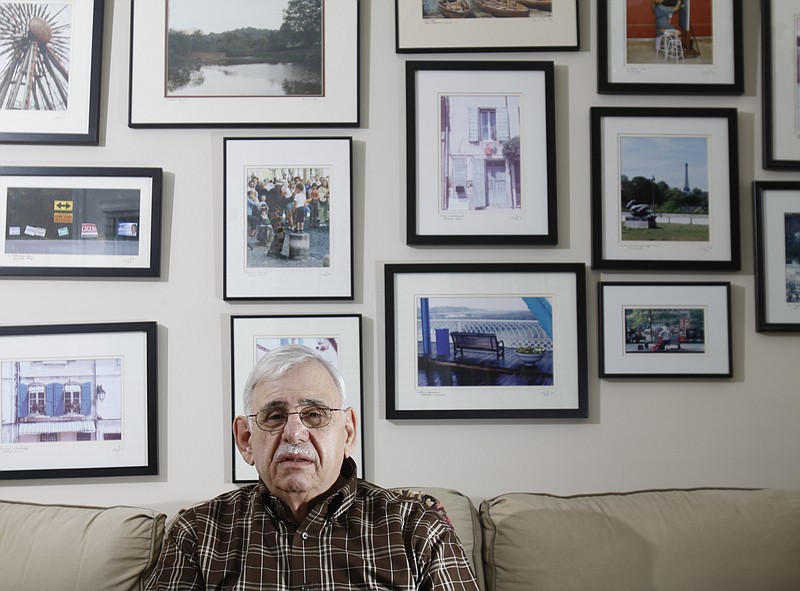Although Congress issued a temporary fix to an across-the-board cap on Medicare payments for physical therapy services, local physical therapists and Medicare patients say they still feel anxious about the future of rehabilitation for seniors.
"It's something that makes a lot of the Medicare patients a little nervous because they don't want to get caught with a huge bill that they're unable to pay," said Connie Petty, director of rehabilitation at the Center for Sports Medicine and Orthopaedics in Chattanooga.
"There's a lot of fear out there among our Medicare patients," said Troy Bage, president of Ooltewah-based BenchMark Physical Therapy, which has 65 sites in Tennessee and Georgia.
On Tuesday night, the Senate passed a bill to extend temporarily a provision that allows Medicare patients to get an exception to the cap on physical therapy services.
The caps now are set at $1,860 for physical therapy and speech therapy and a separate $1,860 limit for occupational therapy. The limits apply only to therapy services in non-hospital outpatient settings.
But after the latest extension expires March 31, it's uncertain whether Congress will extend the stop-gap solution, repeal the cap completely or again make all seniors subject to the limits. Medicare beneficiaries would have to pay 100 percent out of pocket for care after hitting the cap.
The annual caps initially were written to control Medicare spending as part of the Balanced Budget Act of 1997, said Anne Thompson, associate professor of physical therapy at Armstrong Atlantic State University in Savannah, Ga., and immediate past president of the Georgia Physical Therapy Association.
"It was an effort to control costs, but what happened then was we set up some real roadblocks to care," Dr. Thompson said.
For years, Congress repeatedly has extended a provision that allows exceptions to the cap when medically necessary. But this year, delay in congressional action resulted in the cap actually going into effect Jan. 1.
Unsure if Congress would act retroactively on the provision, some Medicare patients ended up halting their rehabilitation or cutting back on sessions as they approached the gap, local physical therapists said.
Clinicians at Benchmark told Medicare patients that the company would pay for any of their therapy costs that exceeded the cap up through April, Mr. Bage said. The idea was to allow patients to continue their regular course of care while holding out hope for a congressional solution, he said.
"We were really putting ourselves out there because, if (Congress) didn't do the exception, we could been stuck with more than $100,000," Mr. Bage said.
"ONE SIZE FITS ALL"
Medicare beneficiary Irv Ginsburg, 73, is receiving physical therapy at the Center for Sports Medicine after surgery to repair a torn shoulder tendon and rotator cuff.
The Ooltewah resident said an arbitrary cap on highly individualized medical services doesn't make sense.
"It's one size fits all," Mr. Ginsburg said. "It is not understandable. Injuries vary from one person to the next."
Stroke patients with both mobility and speech problems face even greater constraints because speech and physical therapy share a cap of $1,860, Dr. Thompson said.
"Our running joke is: 'Well, do you want to walk or talk?'" she said.
Inadequate rehabilitation could compromise a senior's ability to live independently, Ms. Petty said.
"The longer we can sustain independence in that Medicare population, that really decreases the number of medical dollars that are used for them," she said.
A long-term solution still is uncertain. The stalled Senate and House health care reform proposals again would have extended the exception provision for one and two years, respectively.
One bill now in Congress would extend the provision until the end of 2010 and another, the Medicare Access to Rehabilitation Services Act, would repeal the cap altogether.
TEMPORARY EXTENSION ACT OF 2010
The bill, which passed Congress Tuesday night, has allowed for exceptions to an across-the-board cap for physical therapy services provided to Medicare recipients through the end of March. The bill also retroactively canceled a 21-percent rate cut, which went into effect Monday, for physicians who treat Medicare patients.
CONGRESSMEN RESPOND
"Sen. Corker believes Medicare beneficiaries should have access to the outpatient and inpatient physical therapy, occupation therapy and speech language pathology services that they need, and has supported legislation previously to extend the therapy cap exception." - Laura Lefler Herzog, communications director, Sen. Bob Corker, R-Tenn.
"Sen. Alexander has supported extending Medicare's therapy cap exception in the past to make sure seniors get the treatment they need." - Jim Jeffries, press secretary, Sen. Lamar Alexander, R-Tenn.
"It's important that our Medicare beneficiaries have access to necessary medical care, including physical therapy treatment. I agree that there should be a permanent solution, which is why I'm a co-sponsor of the Medicare Access to Rehabilitation Services Act, legislation to permanently repeal the cap." - U.S. Sen. Saxby Chambliss, R-Ga.
"Sen. Isakson supports repealing the cap on physical therapy benefits for Medicare beneficiaries, but he believes Congress must first find a way to pay for it." - Sheridan Wilson, press secretary, U.S. Sen. Johnny Isakson, R-Ga.
